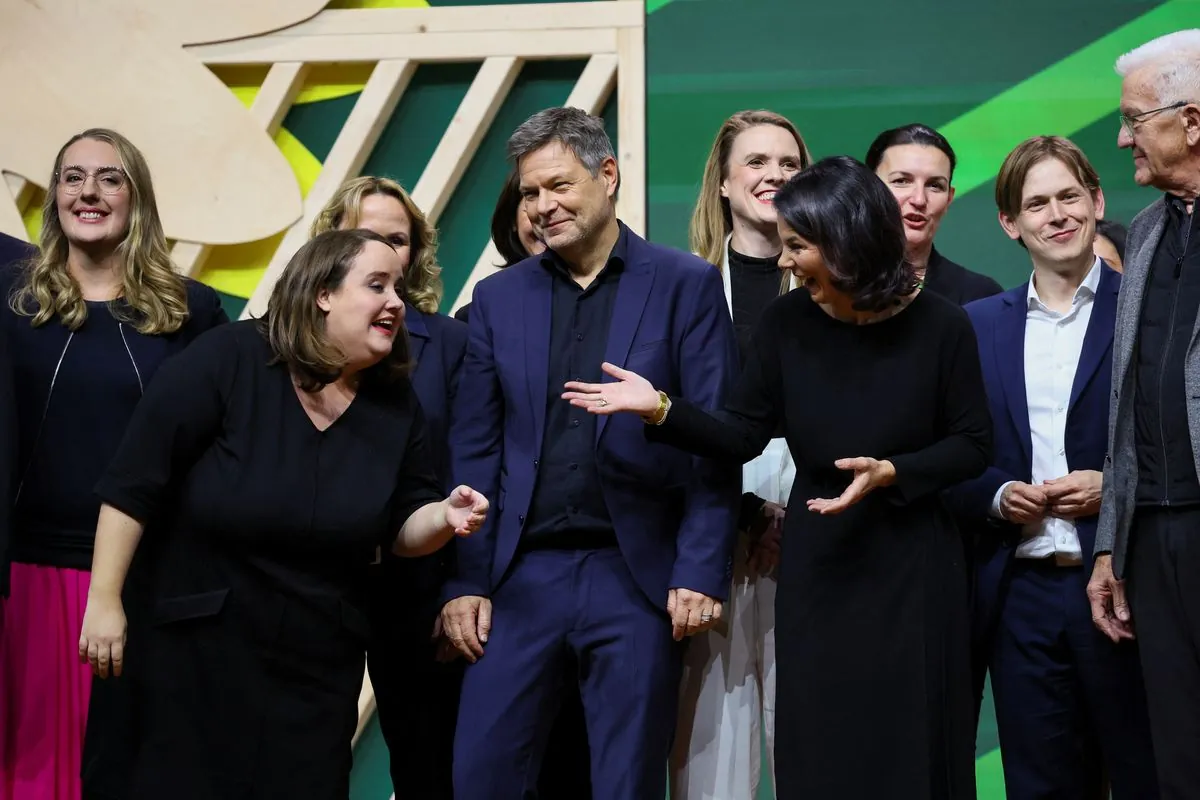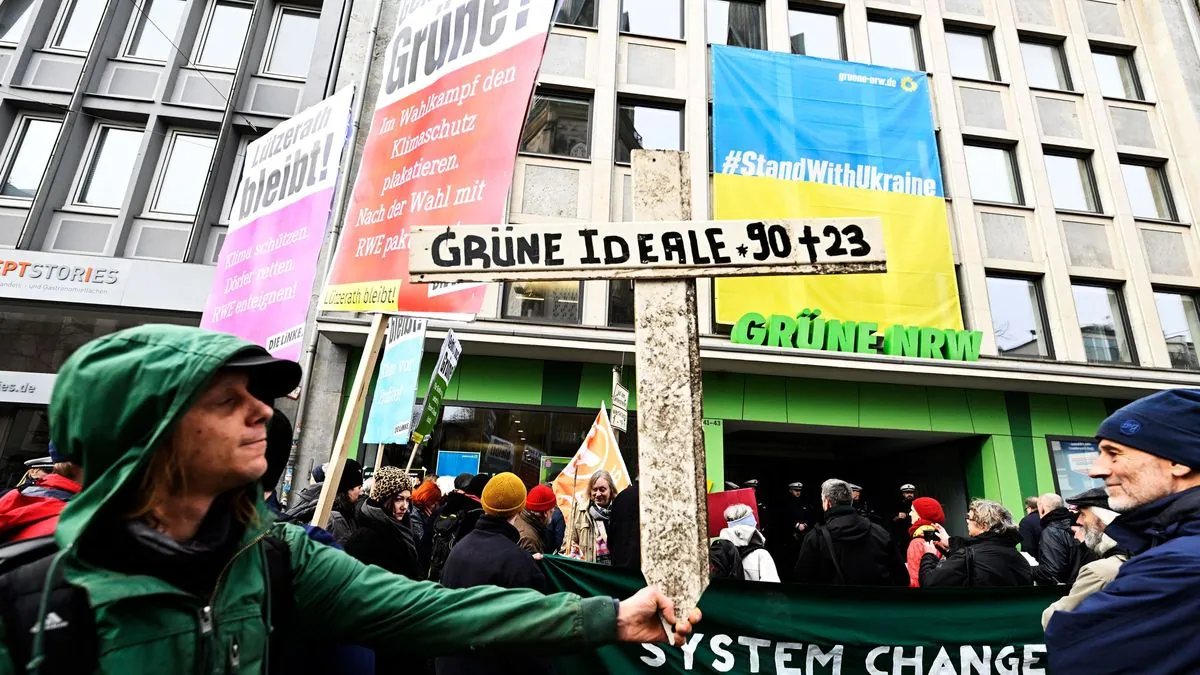German Greens Leaders Step Down Amid Party's "Deepest Crisis"
Greens co-leaders announce resignation following poor election results. Decision marks a turning point for the party, which has faced declining popularity and coalition challenges.

In a significant development for German politics, the co-leaders of the Green Party, Omid Nouripour and Ricarda Lang, have announced their resignation. This decision comes in the wake of a series of disappointing election results, marking what Nouripour described as the party's "deepest crisis for a decade."
The Greens, founded in 1980 with roots in environmental and peace movements, have experienced a sharp decline in support recently. The party's performance in the European Parliament election in June 2024 and subsequent regional elections in eastern Germany, particularly in Brandenburg on September 17, 2024, has been notably poor.
Nouripour stated, "It is necessary and it is possible to overcome this crisis," emphasizing the need for a "new beginning" for the party. The leadership change is scheduled for the party congress in mid-November 2024, allowing time for new faces to emerge and lead the party out of its current predicament.

The Greens' current struggles are a stark contrast to their historical achievements. Since entering the national government for the first time in 1998, the party has been instrumental in shaping German politics, particularly in areas of environmental protection and social justice. In 2021, they achieved their best-ever result in a federal election with 14.8% of the vote, leading to their current role in the coalition government.
However, the party's participation in Chancellor Olaf Scholz's coalition has been fraught with challenges. The government, an uneasy alliance of the Social Democrats, Greens, and Free Democrats, has faced criticism for prolonged debates over poorly explained projects. One particularly contentious issue was the plan to replace fossil-fuel heating systems with greener alternatives, which raised concerns about potential costs for citizens.
"New faces are needed to lead this party out of this crisis. You can imagine that this decision isn't easy, but we are taking it out of conviction."
The Greens' current predicament reflects broader challenges faced by the party throughout its history. While evolving from a radical anti-establishment movement to a mainstream political force, the Greens have often struggled to balance their core environmental principles with economic realities and broader voter appeal.
Despite these challenges, the Greens have made significant contributions to German politics. They have been at the forefront of pushing for Germany's energy transition (Energiewende), advocating for stricter climate protection laws, and supporting LGBTQ+ rights and gender equality initiatives. The party has also shown flexibility in its positions, as evidenced by its support for sending weapons to Ukraine in 2022, marking a shift from its traditional pacifist stance.
As the Greens prepare for new leadership, the party faces the task of reconnecting with voters while maintaining its core values. The upcoming leadership change does not affect the Greens' ministers in the current cabinet, including Vice Chancellor Robert Habeck and Foreign Minister Annalena Baerbock, who will continue to play crucial roles in shaping German policy.
The coming months will be critical for the Greens as they seek to overcome their current crisis and redefine their role in German politics. The party's ability to adapt and address the concerns of a broader electorate while staying true to its environmental and social justice roots will be key to its future success.


































